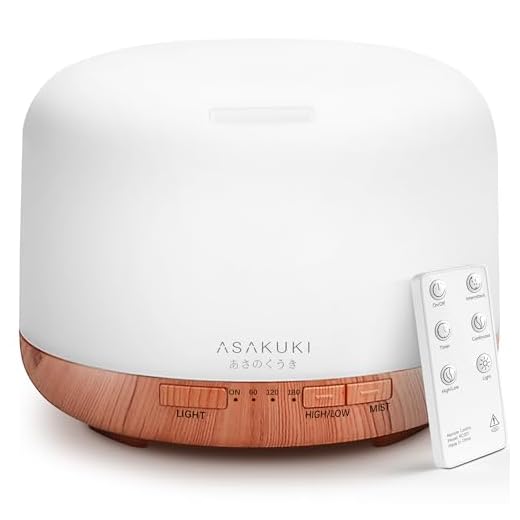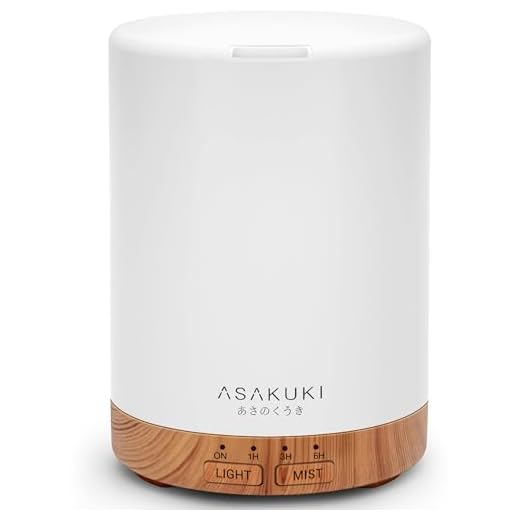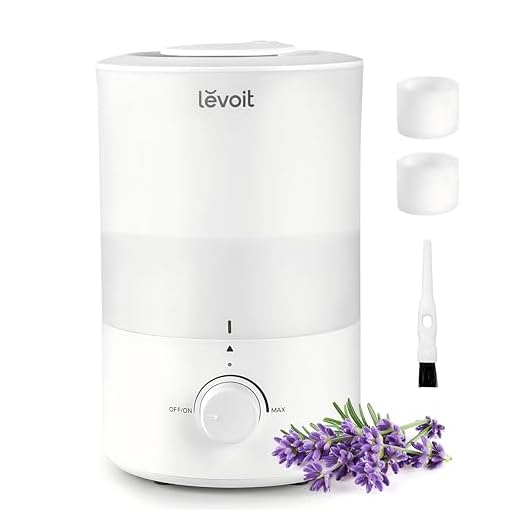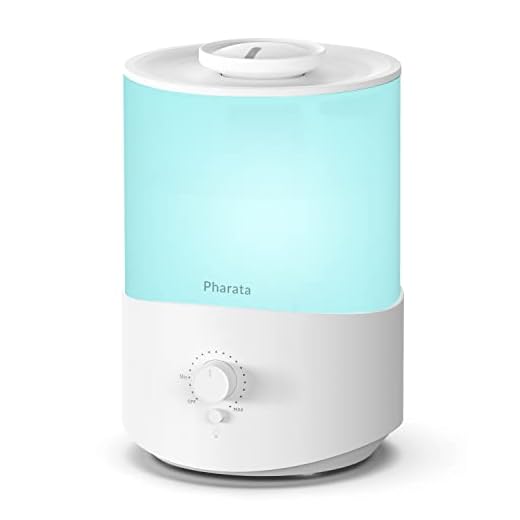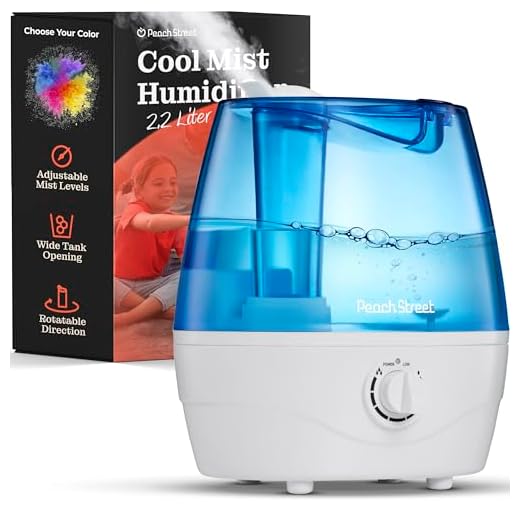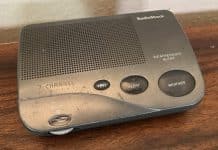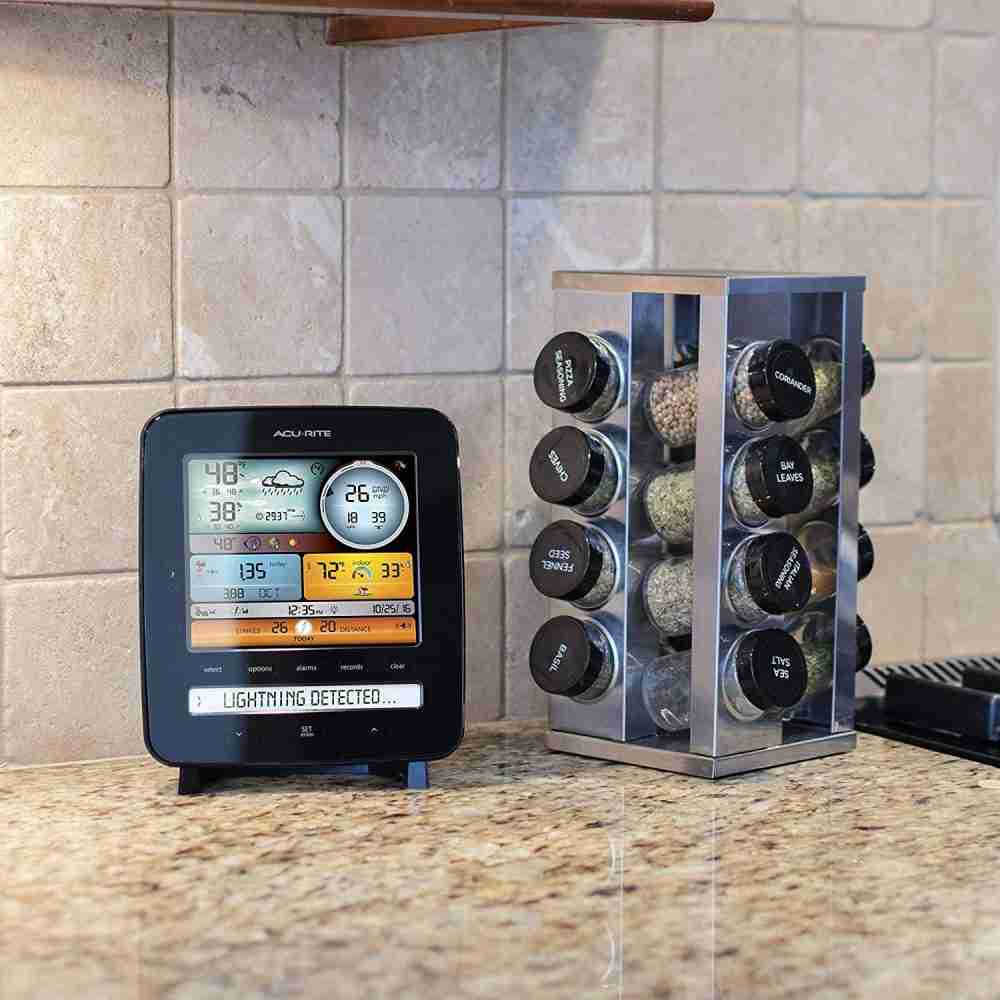So you’re looking to improve the air quality in your home, but you’re not sure whether to invest in a diffuser or a humidifier.
Well, fear not; we’re here to help clear the confusion! This article explores the critical differences between a diffuser and a humidifier, allowing you to make an informed decision.
By the end, you’ll better understand which device best suits your needs and be ready to take the next step toward creating a healthier living environment.
What is a diffuser?
A diffuser is a device that disperses essential oils into the air, creating a pleasant and therapeutic aroma. It is often used in aromatherapy practices to promote relaxation, improve sleep, and enhance overall well-being.
Definition
A diffuser is a tool that breaks down essential oils into tiny particles and disperses them into the air. This is usually done using water and ultrasonic vibrations to create a fine mist. The mist can then be inhaled, allowing the body to absorb the beneficial properties of the essential oils.
Function
The primary function of a diffuser is to distribute the scent of essential oils throughout a room or area. By doing so, it not only provides a pleasant fragrance but also allows the beneficial properties of the oils to be absorbed by the body. This can help improve mood, reduce stress and anxiety, and relieve various ailments.
Types of Diffusers
Several types of diffusers are available, each with its unique method of dispersing essential oils. Some common types include ultrasonic, nebulizing, evaporative, and heat diffusers. Each type has advantages and disadvantages, so choosing one that suits your needs and preferences is essential.
What is a humidifier?
A humidifier is a device that adds moisture to the air to help alleviate dryness and improve overall comfort. It is commonly used in homes and offices to combat dry air, especially in winter or arid climates.
Definition
A humidifier is a device that increases the moisture level in the air by emitting water vapor or steam. It helps to add humidity to dry indoor environments, which can benefit your health and your home’s condition.
Function
The primary function of a humidifier is to combat dry air by adding moisture to the environment. Dry air can cause various issues, such as dry skin, dry throat, irritated nasal passages, and static electricity. By increasing the humidity level, a humidifier can help alleviate these symptoms and improve overall comfort.
Types of Humidifiers
Different types of humidifiers are available, including evaporative humidifiers, ultrasonic humidifiers, impeller humidifiers, and steam vaporizers. Each type operates differently and has its advantages and disadvantages. Consider factors such as noise levels, maintenance, and desired output when choosing the right type of humidifier for your needs.
Key Differences
While diffusers and humidifiers improve the air quality in a space, the two have several key differences.
Main Purpose
The primary purpose of a diffuser is to disperse essential oils into the air to promote relaxation and well-being through aromatherapy. On the other hand, a humidifier’s primary purpose is to add moisture to the air to alleviate dryness and improve overall comfort.
Operation
Diffusers break down essential oils and disperse them into the air as a fine mist. Humidifiers, on the other hand, emit water vapor or steam to increase the humidity level in the air.
Moisture Output
Diffusers are not designed to add significant moisture to the air. They primarily focus on dispersing essential oils and creating a pleasant aroma. Humidifiers, however, are specifically designed to increase moisture levels in the air and combat dryness.
Aromatherapy
Diffusers are commonly used for aromatherapy purposes and are often equipped with features such as color-changing lights and timers to enhance the experience. Humidifiers do not typically include these features, as their primary focus is improving indoor air quality rather than providing aromatherapy benefits.
Health Benefits
Diffusers can provide various health benefits through inhaling essential oils, such as stress reduction, improved sleep, and enhanced respiratory function. While humidifiers indirectly contribute to respiratory health by alleviating dryness, their primary health benefits lie in relieving dry skin, soothing dry nasal passages, and reducing the likelihood of airborne illnesses.
When to Use a Diffuser
There are several situations in which a diffuser can be beneficial and enhance your environment.
Aromatherapy
A diffuser with essential oils is an excellent choice to promote relaxation, enhance mood, or reduce stress and anxiety. Essential oils such as lavender, eucalyptus, and jasmine have calming properties that can help create a soothing atmosphere.
Mood Enhancement
Diffusers can also uplift your mood or create a specific ambiance in a room. Citrus essential oils like orange or lemon can provide an energizing and refreshing scent, while floral oils like rose or ylang-ylang can create a romantic and calming atmosphere.
Air Freshening
If you want to eliminate unpleasant odors or freshen up a space, using a diffuser with deodorizing essential oils can help. Oils like peppermint, tea tree, or lemongrass can effectively neutralize odors and leave your home smelling fresh and inviting.
When to Use a Humidifier
Humidifiers are particularly beneficial when dry air is a common problem.
Dry Air Relief
A humidifier can help alleviate dry air caused by central heating systems, arid climates, or arid indoor environments. It can relieve dry skin, cracked lips, and dry nasal passages.
Allergy and Asthma Relief
Humidifiers can help reduce the frequency and severity of allergy and asthma symptoms by moisturizing the airways and reducing irritation. However, it is essential to ensure proper maintenance and cleaning of the humidifier to prevent the growth of mold or bacteria, which can exacerbate these conditions.
Cold and Flu Symptoms
When experiencing cold or flu symptoms, a humidifier can provide relief by moisturizing the nasal passages and throat, helping to ease congestion and soothe coughs. A humidifier can contribute to a more comfortable recovery with appropriate medication.
Skin and Respiratory Health
Proper humidity levels can prevent dry skin and keep your respiratory system hydrated. This is especially beneficial for individuals with sensitive or dry skin and those prone to sinus infections or breathing issues.
Suitable Environments
Different environments may require different sizes and types of diffusers or humidifiers to ensure optimal performance.
Room Size
Consider the room size where you intend to use the diffuser or humidifier. Smaller rooms may only require a compact device, while larger spaces may need a more robust model to disperse essential oils or add moisture effectively.
Climate
The climate of your location is an essential factor to consider when choosing between a diffuser and a humidifier. If you reside in a dry climate, a humidifier may be more beneficial to combat the dryness. A diffuser, on the other hand, can be used in any climate.
Seasonal Use
Certain seasons may warrant the use of either a diffuser or a humidifier. For example, a humidifier can help combat dry air caused by indoor heating systems during the dry winter. On the other hand, diffusers can be used year-round to create a pleasant and relaxing ambiance.
Maintenance and Cleaning
Proper maintenance and regular cleaning are essential for both diffusers and humidifiers to ensure optimal performance and prevent the growth of mold or bacteria.
Diffuser Maintenance
For diffusers, maintenance typically involves refilling the water tank, regularly cleaning the tank and discarding any residual water or oil, and replacing or cleaning the atomizer.
Diffuser Cleaning
Cleaning a diffuser usually involves emptying the water tank, wiping it with a soft cloth, and cleaning the atomizer using specific instructions provided by the manufacturer. Regular cleaning helps prevent the buildup of bacteria or residue.
Humidifier Maintenance
Humidifiers require similar maintenance, such as refilling the water tank regularly, cleaning or replacing the filter (if applicable), and ensuring proper water circulation. It is essential to follow the manufacturer’s instructions for specific maintenance requirements.
Humidifier Cleaning
Cleaning a humidifier involves emptying and cleaning the water tank, scrubbing the tank with a mild detergent or vinegar solution, and regularly descaling the unit. Mold and bacteria growth can be prevented by thoroughly cleaning and disinfecting regularly.
Safety Considerations
When using both diffusers and humidifiers, it is essential to keep safety considerations in mind to prevent accidents or potential hazards.
Water Safety
For diffusers and humidifiers, it is crucial to use clean and distilled water to prevent the buildup of mineral deposits and the growth of mold or bacteria. Using tap water or impure water sources can create health risks and damage the device.
Electrical Safety
Ensure the diffuser and humidifier are plugged into a grounded electrical outlet and follow the manufacturer’s instructions for proper usage and safety precautions. Avoid using extension cords or overloading electrical circuits.
Potential Hazards
While diffusers are generally safe, some essential oils can be toxic to pets or young children. It is important to keep diffusers out of reach and ensure proper ventilation. Humidifiers must also be used cautiously, as excessive moisture can promote mold growth if not properly maintained.
Cost Comparison
When deciding between a diffuser and a humidifier, it is essential to consider the initial cost, operating costs, and potential additional expenses.
Initial Cost
In general, diffusers tend to have a lower initial cost than humidifiers. Diffusers are generally more affordable, with various options available at various price points. Humidifiers, particularly those with advanced features or larger capacity, may have a higher upfront cost.
Operating Costs
The operating costs of a diffuser are typically lower compared to a humidifier. Diffusers primarily require a supply of essential oils, which can vary in price depending on the quality and type of oil used. Humidifiers, however, require electricity and water, resulting in potentially higher ongoing operating costs.
Additional Expenses
Consider any potential additional expenses when comparing the cost of diffusers and humidifiers. This may include purchasing additional essential oils for diffusers or replacing filters or cleaning supplies for humidifiers. These ongoing expenses can add up over time, so factoring them into your decision is essential.
Choosing the Right Option
Choosing between a diffuser and a humidifier depends on several factors, including your intended purpose, room size, climate, budget, and maintenance preferences.
Purpose and Desired Effects
Consider your main reason for wanting either a diffuser or a humidifier. A diffuser is the most suitable option if you are primarily interested in aromatherapy and creating a pleasant aroma. If your primary concern is combating dryness and improving air quality, a humidifier is the better choice.
Room Size and Climate
Consider the size of the room you plan to use the device in and the climate of your location. Diffusers are generally suitable for all room sizes, while humidifiers may require larger models for bigger spaces. A humidifier may be more beneficial if you live in a dry climate.
Budget and Maintenance
Consider your budget for purchasing and operating the device and your willingness to perform regular maintenance. Diffusers tend to have a lower upfront cost and more straightforward maintenance requirements. Humidifiers may have higher initial costs and more intricate maintenance needs.
Personal Preferences
Ultimately, personal preferences play a significant role in choosing between a diffuser and a humidifier. Consider the desired aroma, ambiance, and overall experience you wish to create in your space. Whether you prefer the therapeutic benefits of essential oils or the moisturizing effects of humidified air, choose the option that aligns with your preferences and needs.
In conclusion, diffusers and humidifiers serve different purposes and offer unique benefits. Diffusers are ideal for aromatherapy and creating a pleasant ambiance, while humidifiers add moisture to the air and improve comfort levels. Consider your specific needs, room size, climate, and personal preferences when choosing between a diffuser and a humidifier, and enjoy the benefits they bring to your living or working environment.
ASAKUKI 500ml Premium, Essential Oil Diffuser with Remote Control, 5 in 1 Ultrasonic Aromatherapy Fragrant Oil Humidifier Vaporizer, Timer and Auto-Off Safety Switch
1 used from $21.06
ASAKUKI 300ML Essential Oil Diffuser, Quiet 5-in-1 Premium Humidifier, Natural Home Fragrance Aroma Diffuser with 7 LED Color Changing Light and Auto-Off Safety Switch
$17.99 in stock
2 used from $16.19
InnoGear Essential Oil Diffuser, Upgraded Diffusers for Essential Oils Aromatherapy Diffuser Cool Mist Humidifier with 7 Colors Lights 2 Mist Mode Waterless Auto Off for Home Office Room, Basic White
$13.99 in stock
YIKUBEE Essential Oil Diffusers, 500ml Diffusers for Essential Oils Large Room,Home, Aromatherapy Oil Diffuser with Cool Mist
Homeweeks Diffusers, 100ml Colorful Essential Oil Diffuser with Adjustable Mist Mode,Auto Off Aroma Diffuser for Bedroom/Office/Trip (100 ML 1 Pack)
Rosekm® Humidifiers for Bedroom, Cool Mist Humidifier for Home Plant and Baby Nursery, Quiet Ultrasonic Humidifier with 360° Nozzle, Auto Shut-Off, Filterless, Black
$24.98 in stock
LEVOIT Humidifiers for Bedroom, Quiet (3L Water Tank) Cool Mist Top Fill Essential Oil Diffuser with 25Watt for Home Large Room, 360° Nozzle, Rapid Ultrasonic Humidification for Baby Nursery and Plant
AquaOasis™ Cool Mist Humidifier (2.2L Water Tank) Quiet Ultrasonic Humidifiers for Bedroom & Large room - Adjustable -360 Rotation Nozzle, Auto-Shut Off, Humidifiers for Babies Nursery & Whole House
$39.99 in stock
2 used from $36.76
Pharata® Humidifiers for Bedroom Large Room, 2.5L Cool Mist Humidifier with Essential Oil Diffuser, Top Fill Humidifier for Baby, Home, Plant, Ultrasonic Humidification for whole house, Auto Shut-Off, (White)
$26.99 in stock







